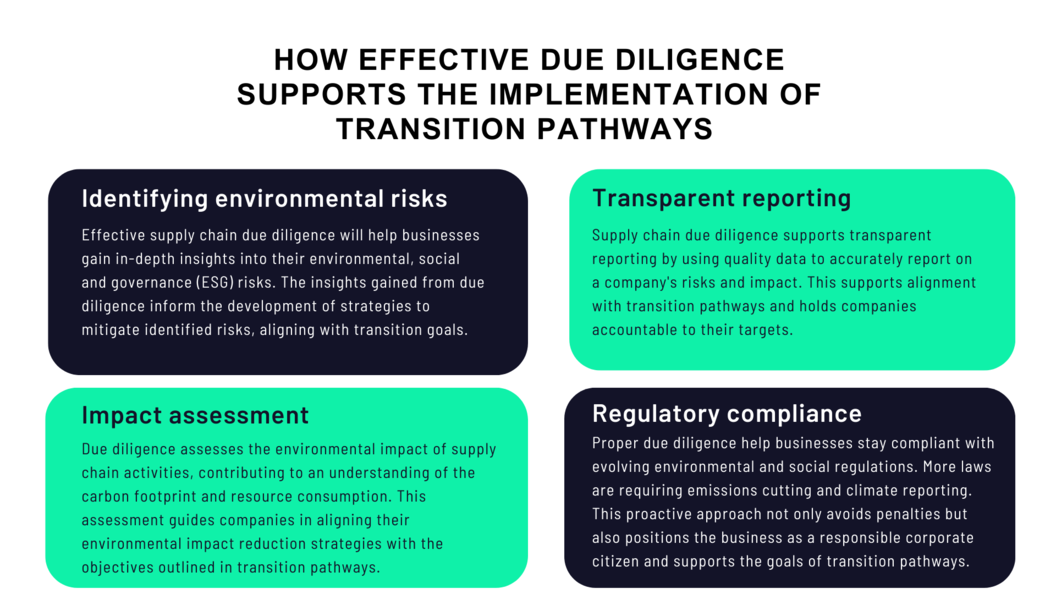What is a transition pathway, anyway? How supply chain due diligence supports a sustainable transition plan
Transition pathways are frameworks for companies transitioning to more sustainable and responsible practices. Transition pathways can encompass the transition to better overall Environmental, Sustainable, and Governance (ESG) practices, but are primarily referred to in the context of the “E” and in discussions on carbon reduction and energy transitions.
Why do we need them? The world is heating up at an alarming rate, and we are all at risk of the repercussions and impact of global warming. Research also shows climate change could even be driving more children into forced labor.1 To prevent further consequences, businesses must prioritize transitions to more sustainable operations.
The Glasgow Financial Alliance for Net Zero (GFANZ), a coalition working to support financial institutions in decarbonization, put it best:
“A net-zero transition plan is a set of goals, actions, and accountability mechanisms to align an organization’s business activities with a pathway to net-zero GHG emissions that delivers real-economy emissions reduction in line with achieving global net zero.”
A climate transition pathway might include steps like increasing energy efficiency, shifting from coal to natural gas, ramping up renewable energy production, and ultimately moving to a fully renewable and zero-emission energy system. These frameworks better position businesses to thrive in a landscape where environmental considerations and reducing carbon footprint are integral to long-term success as well as support the ongoing ESG risk management process.
The path to transitioning to more sustainable processes can often require changes at multiple levels, from individual behaviors and technologies to policies and market structures.
Developing your transition plan
A recent report published by GFANZ outlines recommended steps for beginning a transition pathway.

GFANZ summary of recommendations for transition pathways
The key steps, according to GFANZ, begin with identifying the foundational objectives to your organization and clearly defining your priorities. This includes outlining tangible targets and procedures that will contribute to the Paris Agreement goals for cutting emissions.
From there, organizations can begin to implement their strategies, engage with stakeholders and suppliers, in the case of supply chain due diligence strategy, and establish metrics and governance to review and refine the strategy as needed.
Transition pathways, meet supply chain due diligence
The need for businesses to cut carbon emissions and meet targets set out by the Paris Agreement to reduce global warming is getting more urgent, and transition pathways can play a vital role in helping businesses with their climate strategies. To that end, supply chain due diligence is critical in supporting this implementation of effective transition pathways through several aspects:
Transition pathways, like due diligence, are not a one-size-fits-all process. A business must understand its organization’s specific needs and priorities to ensure their transition plan is effective. To achieve this, a robust due diligence process must also be in place where near real-time risk monitoring and continuous improvement are prioritized.
As we approach the United Nations Climate Change Conference (COP28) and climate strategies come more into focus, businesses can stay ahead through enhancing due diligence and developing and implementing strategic transition pathways.
Learn how to future-proof your business by contacting us.
About the author